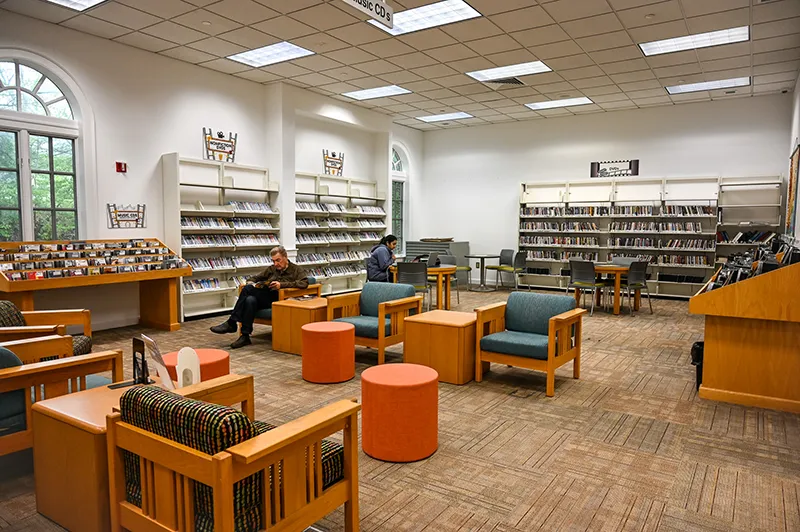By: Prarti Satya

The issue of censorship has been a hot topic in politics, and within the last month it has come to a head in Georgia with a recent Senate Bill, GA SB 74. This bill addresses the distribution of materials deemed “harmful” to minors, and it eliminates the protections that were previously afforded to librarians within state code. Essentially, where libraries were originally exempt from legal repercussions regarding distribution of “obscene” materials to minors, librarians could now face consequences for the books they lend out to underage patrons. This includes any materials that might be perceived as indecent or profane, and this recently proposed Senate bill would substantially restrict the types of materials that can be freely distributed by libraries.
Given how controversial the issue of censorship is in contemporary politics, the bill has faced criticism from the public. Libraries have proven to be an invaluable part of the Georgia community, with over 400 spread across every county in the state. Without the previous exception protecting libraries’ ability to freely disseminate materials, young readers could face significant restrictions on the topics they can read about in libraries.
Georgia code defines works as “harmful to minors” when it lacks any serious literary, political, artistic, or scientific merit. However, there are no clear standards for determining what works fit under this exception. This determination is highly subjective and gives cause for concern about certain topics being more vulnerable to censorship than others. While it is true that the same standards may be applied to all literature in theory, restrictions on literature tend to disproportionately affect books addressing issues of race, gender, and sexuality. This bill has not yet been passed, as it is still awaiting a vote by the Georgia House, but should this bill be passed, Georgia librarians will forever have the threat of legal action hanging over their heads, preventing them from lending books that touch on historically censored topics to young students.
This threat to students’ ability to freely access books cuts to the core of what it means to provide young adults with a comprehensive education. GA SB 74 comes in the wake of President Trump’s ongoing efforts to dismantle the Department of Education, including a recent executive order on the subject. It remains to be seen how the Department of Education might redistribute its powers to other departments–and which roles it plays will simply cease to exist. However, should the Department of Education be eliminated, the lack of federal funding to ensure quality of education would disproportionately affect poorer communities and rural areas. Furthermore, many communities dominated by racial minorities will tend to feel the impacts of this executive order the most severely, given the department’s role in providing funding to under-resourced Black-dominated neighborhoods. Additionally, the abolishing of the Department of Education would eliminate support for students with disabilities and make their education even more inaccessible.
Furthermore, through various executive orders, President Trump is seeking to push a pro-privatization agenda through educational policy. One way in which he is aiming to do this is by utilizing public funds that would go toward the public education system to instead help parents pay for privatized, often faith-based education. However, sending a student to a private school rather than a public school could severely restrict the scope of the education a student is receiving, especially without the Department of Education’s oversight in ensuring the quality of education students receive. This effect is only exacerbated by GA SB 74, which would restrict libraries from providing materials that could expose K-12 students to topics that their education may not address.
This is not the only executive order from President Trump that puts the integrity of K-12 public education at risk. Trump has also made education on race-related issues a target through his executive order banning education on race-related issues. With the Trump administration’s attempts to limit students’ exposure to race-related issues and privatize education, students’ exposure to diverse topics is becoming increasingly threatened, an issue exacerbated by GA SB 74. The best way for students to subvert these attempts to restrict what they can learn about is for them to be able to openly access information and literature outside the scope of their education. Thus, the legal perils of librarians providing such materials to young students is another means of censoring education.
President Trump cannot fully disband the Department of Education without congressional approval. Even so, he seeks to drastically reduce its power and functions to only the barest necessities and take action to preemptively facilitate its disbanding. This, coupled with the number of executive orders he has been able to pass regarding restriction of education, has severely destabilized the comprehensiveness of lower education, preventing young students from learning about highly essential topics related to social issues and taboo topics in American history and culture. The combined impact of this and the recent Georgia Senate Bill would make it immensely difficult for Georgia students to access information unrestrictedly.
GA SB 74 has not yet been passed into law; the end of the Georgia legislative session on April 4th may prevent it from being passed into law this legislative session. However, the introduction of this bill sets a dangerous precedent for the future of libraries’ legal protections. Given the recent attempts to dismantle the Department of Education, it is certainly possible that there will be continued attempts in future legislative sessions to strip libraries of their discretion on what materials to distribute. Such a development would have a substantial impact on Georgia students’ ability to receive a well-funded, comprehensive education.

